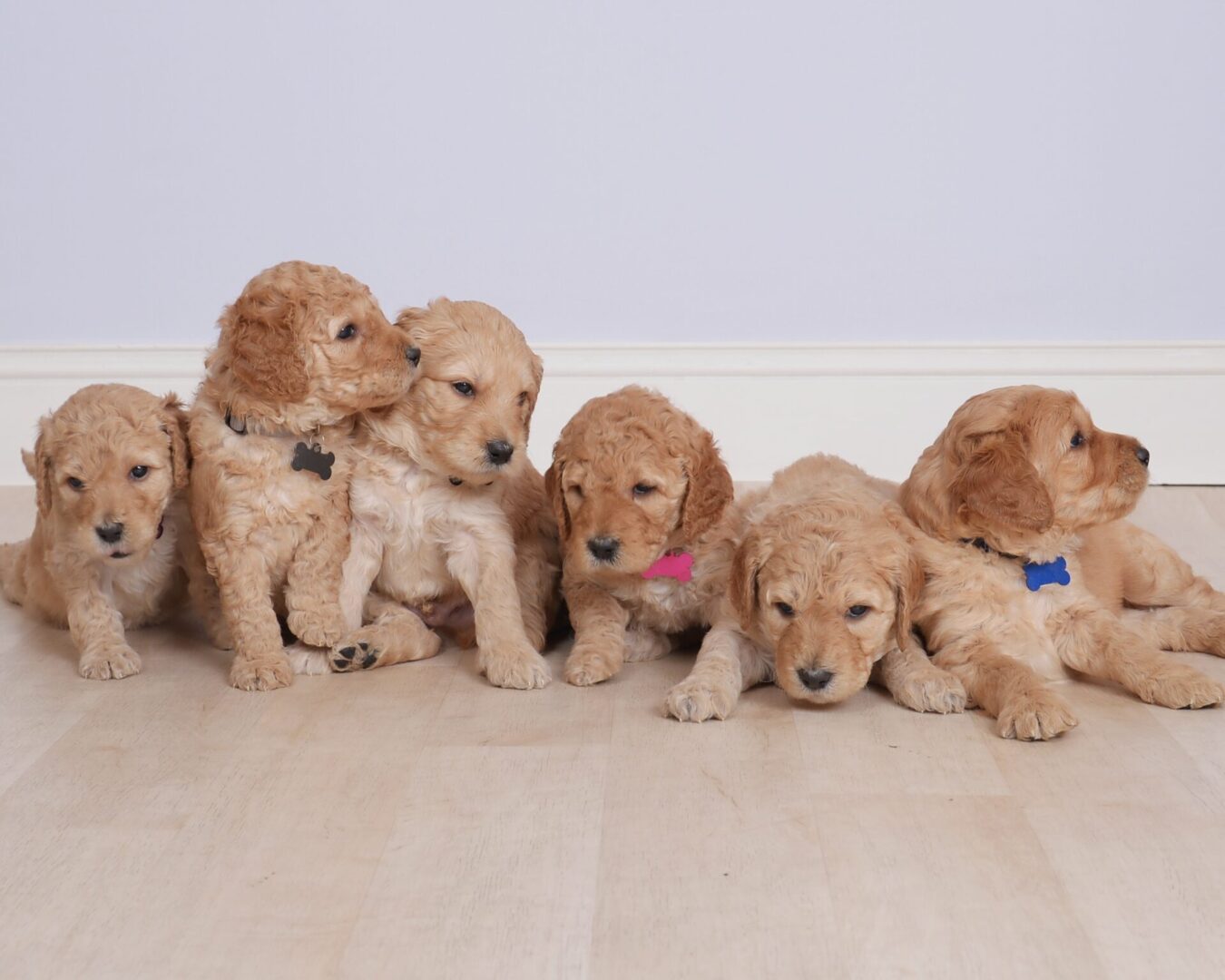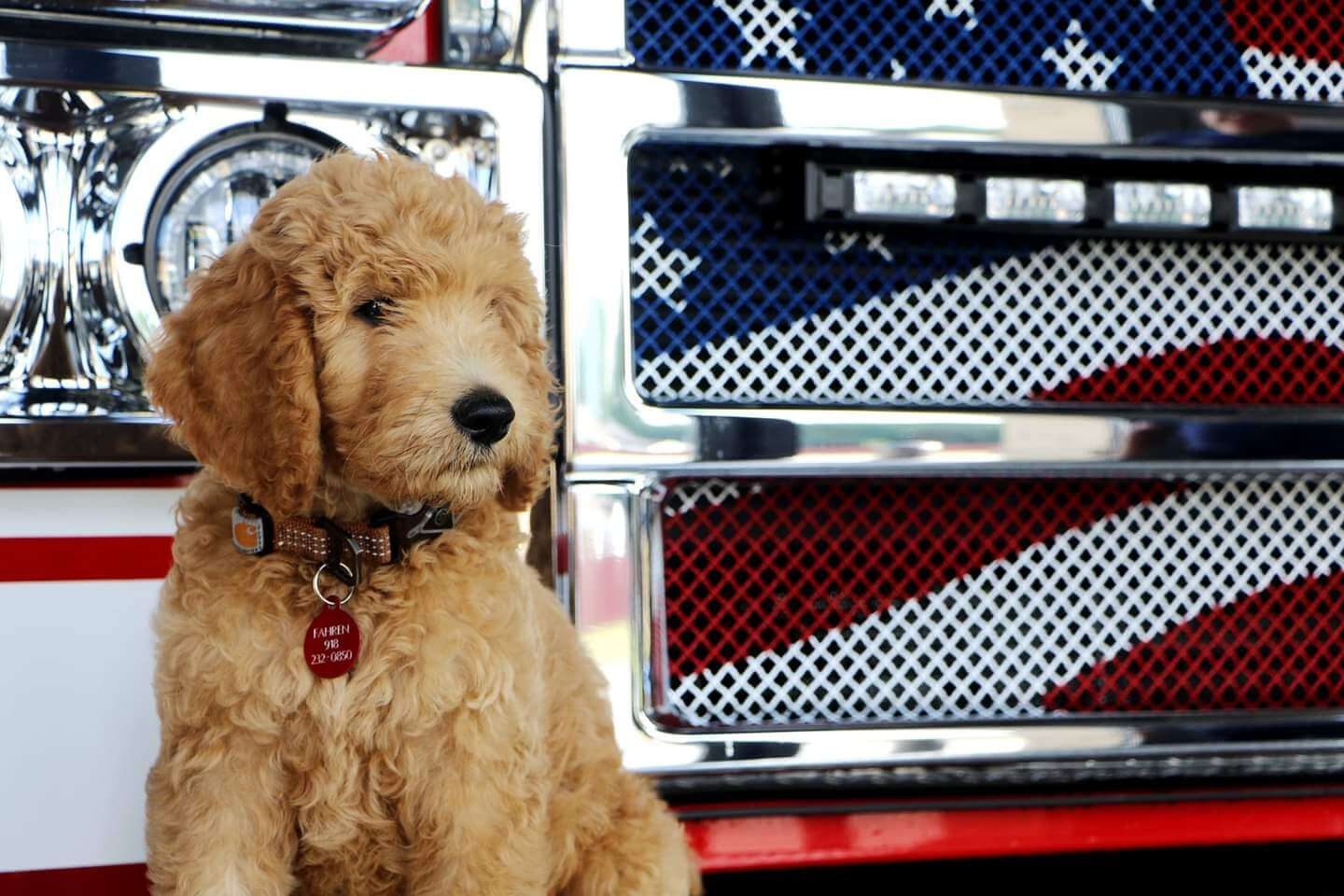Why it’s Not Wrong to Buy a Puppy from a Breeder
As dog breeders, we’ve encountered a few puppy parents over the years who have been torn between rescuing a dog from a shelter or finding a pup from a reputable breeder. Some have even expressed guilt over their decision to adopt rather than rescue a puppy.
While there are certainly valid reasons for rescuing a puppy there are also good reasons to purchase a pup from a reputable breeder. While many view them as opposites, rescues and reputable breeders are actually both important aspects to the future well-being of dogs.

Irresponsible breeding is what any dog advocate should be seeking to avoid and oppose. Reputable breeders, by definition, do not contribute to the overpopulation of shelters as true reputable breeders are contractually tied to their dogs for life and will be responsible for the rehoming of any of their previous puppies as needed. Quality breeders also know what to look for in potential customers, ensuring they’re a good fit.
The obvious benefit to rescuing is helping a dog who has had some bad luck in life to have a loving family. In some cases, rescue or shelter dogs may be adult dogs which can have the benefits of being past some of the difficult puppy stages. They may even have some training under their belts already.
Shelter or rescue dogs are typically less expensive than buying a purebred pup and are likely already spayed or neutered.
While any reputable breeder should be very supportive of rescues, they also recognize that their work fulfills a need in the pet sector as well. Many people don’t realize this, but reputable breeders also have a significant role to play in the future success of the species of dog! Quality breeds are responsible for keeping the wonderful variety of the dog world alive and well. Their health testing and careful selection of parent dogs ensures good health, physical structure and stable temperaments for future generations.
The common phrase “it’s all how they are raised” is not actually supported by science. As with humans, nurture is only part of the equation. Nature/genetics also play a vital role in the development of a dog. A dog’s health, size, and other physical factors are clearly a biproduct of his heritage, but a dog’s personality is also strongly affected by his family history and breed. In other words, not all breeds are created the same.
A recent study out of Harvard University was able to show physical variations in a dog’s brain based on breed. While every dog has its own unique, individual personality, there are also clear breed distinctions. For example, some breeds were bred for hunting, others for herding, others were bred simply for companionship.
So you can expect that a Border Collie and a Pug will have a different reaction to a fast moving cyclist coming down the street. Similarly, a German Shepherd and a Beagle are going to excel at different things. While all dogs are truly wonderful, you will certainly have a preference of different breeds if you are looking for a dog to perform a specific task such as herding cattle, protecting your house or being a therapy dog at a nursing home.

More Reasons You Can Safely Buy Puppies From Trusted Breeders
The greatest benefit to finding a pup from a trusted breeder is the relative certainty and reliability when it comes to what your pup will be like as an adult. Your breeder can tell you a lot about your pup’s future size, coat and most importantly, temperament, simply based on knowing his parents.
Not only do breed differences matter on a large scale (for example, Goldendoodles are known to be family, kid-friendly, jovial dogs) but we as breeders have noticed that even small personality quirks are passed on from parent dogs.
Reputable breeders also typically do temperament tests on their pups and are able to help guide families about which pups will be a good fit for their needs and lifestyle. As a result, these breeders have a much higher likelihood of placing a pup in a home for life. Reputable breeders also require owners to spay or neuter their dogs, further ensuring that they are not contributing to the cycle of irresponsible breeding.
In addition to having a greater understanding of the “nature” or genetics side of the equation when purchasing a pup from a reputable breeder, you also have more say in the “nurture” side as well. The right breeder spends an incredible amount of time and energy ensuring that their pups get the best start possible in life.
If you have done your research and found a reputable breeder, you can rest assured that our pups have been well socialized. Here at Edmond Doodles, we take extra steps to make sure our pups are exposed to a huge variety of sights, sounds and challenges before you ever meet them!

Furthermore, you as an owner can decide exactly what boundaries you want to set and how you want to train your dog from the very beginning. You can make sure he or she continues to be well-socialized and avoid certain stressors.
While many, many rescue dogs have great and stable temperaments, there is always some level of risk when adopting an older dog – such as not knowing the details of their life background.
Many rescue dogs may have negative, ingrained behaviors that were not corrected early on as puppies. Others may have missed out on important socialization early in life. While there is much an owner can do correct and shape such behaviors, it does require significant time and patience and you may not initially be aware of a dog’s triggers.
Buying a Dog From a Breeder Isn’t Morally Wrong
In conclusion, some owners may be good candidates to rescue a dog. Families with past dog experience, confidence in handling a dog with difficult behaviors, and families who are flexible when it comes to specifics such as size, breed, etc. should definitely consider rescuing a dog.
Families who need a dog to perform a specific task or desire a specific temperament, size, etc. are a good candidate to adopt from a reputable breeder. Families with young children typically prefer the temperament stability of a well-bred dog as well as families where allergies are a concern and need a hypoallergenic breed.
No matter which side of the spectrum you find yourself on, doing your research and making a careful decision will ensure you find a wonderful companion for your family!
